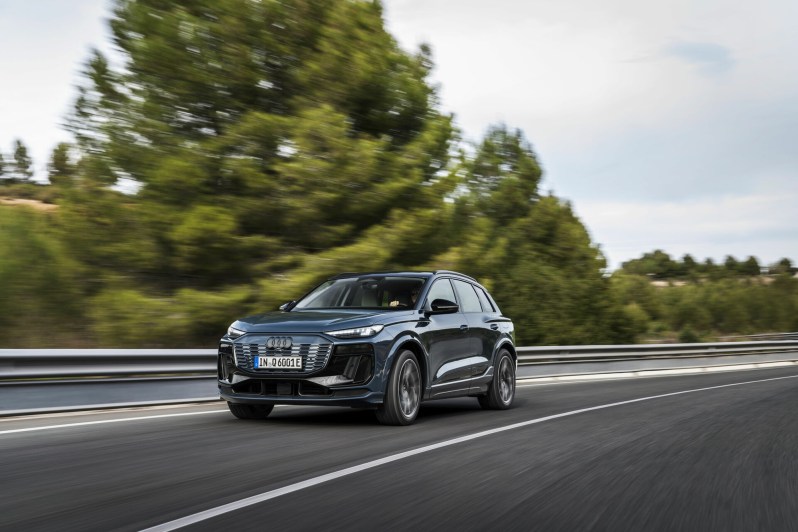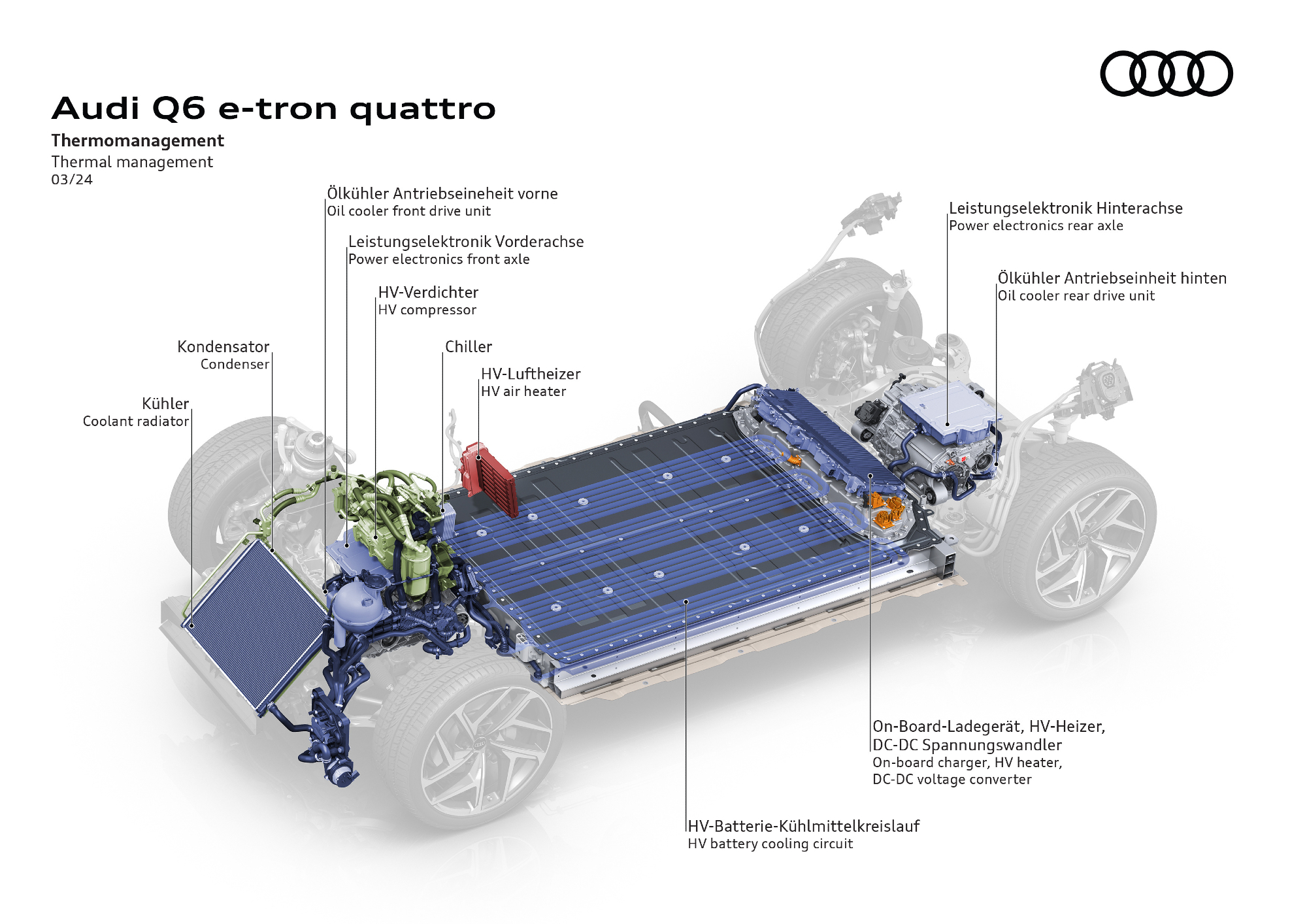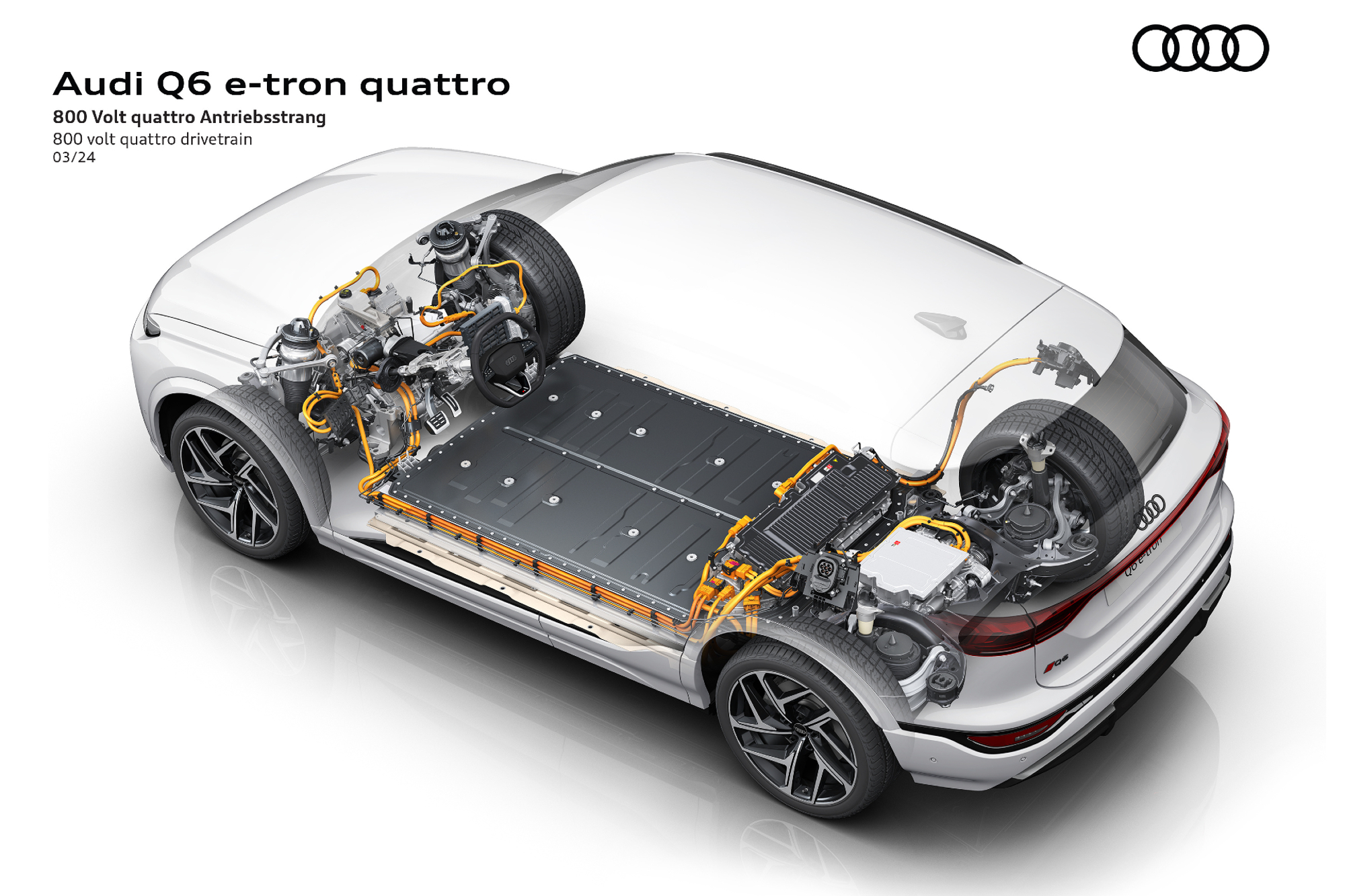
Audi is fast becoming a poster child for EV success and advancement. In addition to enjoying record sales from its e-tron EVs this year, Audi recently introduced the Premium Platform Electric (PPE), an electrical architecture for future EVs. Audi developed PPE jointly with Porsche, another Volkswagen Group brand. Advances in battery electric vehicles (BEVs) are necessary for widespread electrification of the cars, trucks, and SUVs we drive, and Audi isn’t sitting back waiting for Tesla or BYD to find new solutions.
Why the Premium Platform Electric system matters

The Audi/Porsche PPE matters because, with the advanced platform, automakers can develop technologically advanced vehicles to address two of the most important buyer concerns about EVs: range and charging time. With PPE, engineers can also design drive systems that are more efficient, smaller, lighter, and improved heat management.
What’s new with the Porsche and Audi PPE electric drive
The improved powertrain component efficiency possible with PPE sounds nice, but to non-engineers, putting numbers on the improvements can help. Compared to the first-generation e-tron, Audi says, new electric motors designed for PPE would have 40 kilometers more range (about 25 miles). The motors would also be about 30% smaller and weigh about 20% less.
The PPE’s 800-volt architecture helps with the time needed for battery charging, including the time the vehicle is hooked up to the charger, plus pre-conditioning. PPE includes a predictive thermal management system, which in this application can help get the system to the optimal temperature for the greatest charging efficiency. The PPE thermal management system is dynamic, so if traffic or other conditions don’t allow the preconditioning, the system won’t force changes.
Numbers can help once more to appreciate the improvements. As an example, Audi states that with a battery with an approximate 10% charge and plugged into a 270 kW DC charging station, an Audi Q6 e-tron series BEV can add a trade up to 158 miles in ten minutes. Charging to 80% of the battery capacity would take 21 minutes.
The PPE has an array of additional benefits for electric cars, but the greater point is that Audi, and presumably Porsche, aren’t just sitting on their recent sales numbers and waiting for more; the car makers are actively advancing the technology, which ultimately benefits the entire transition.







